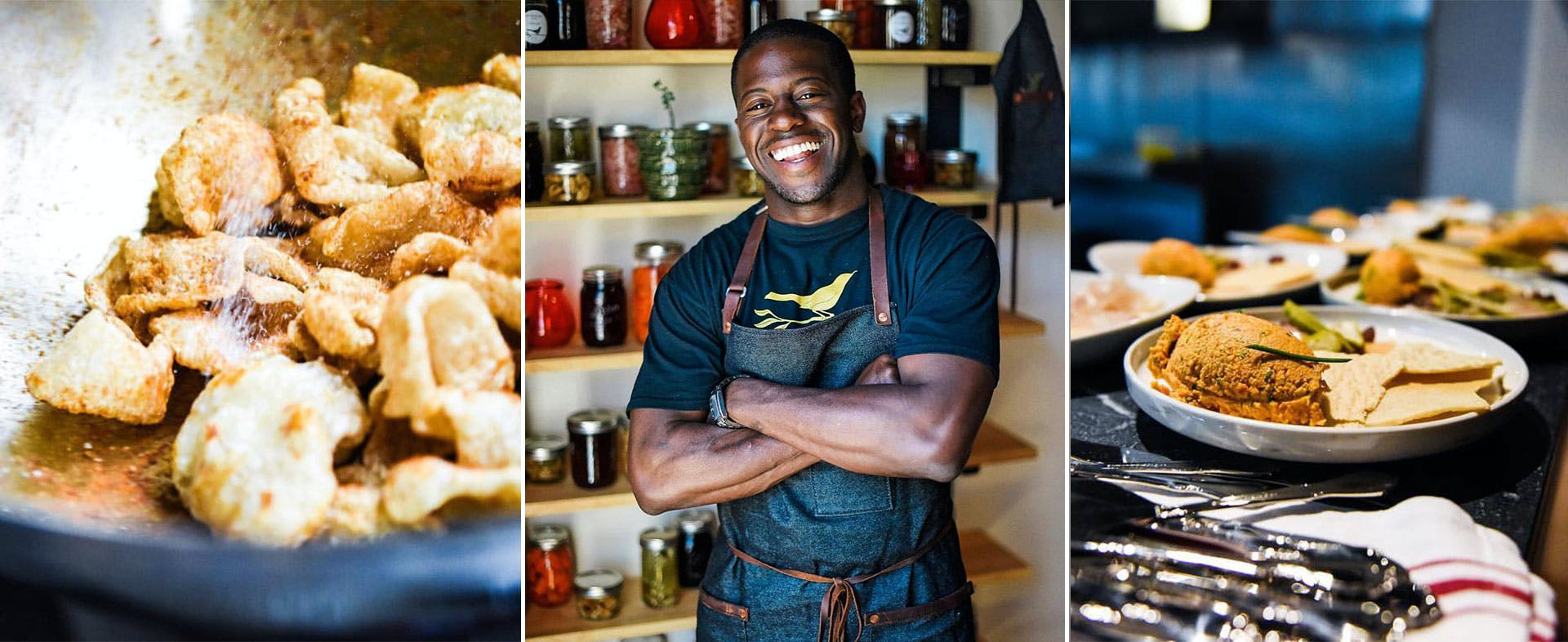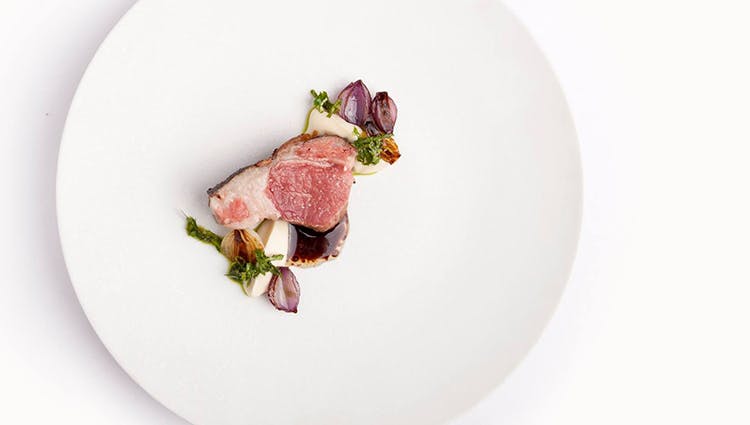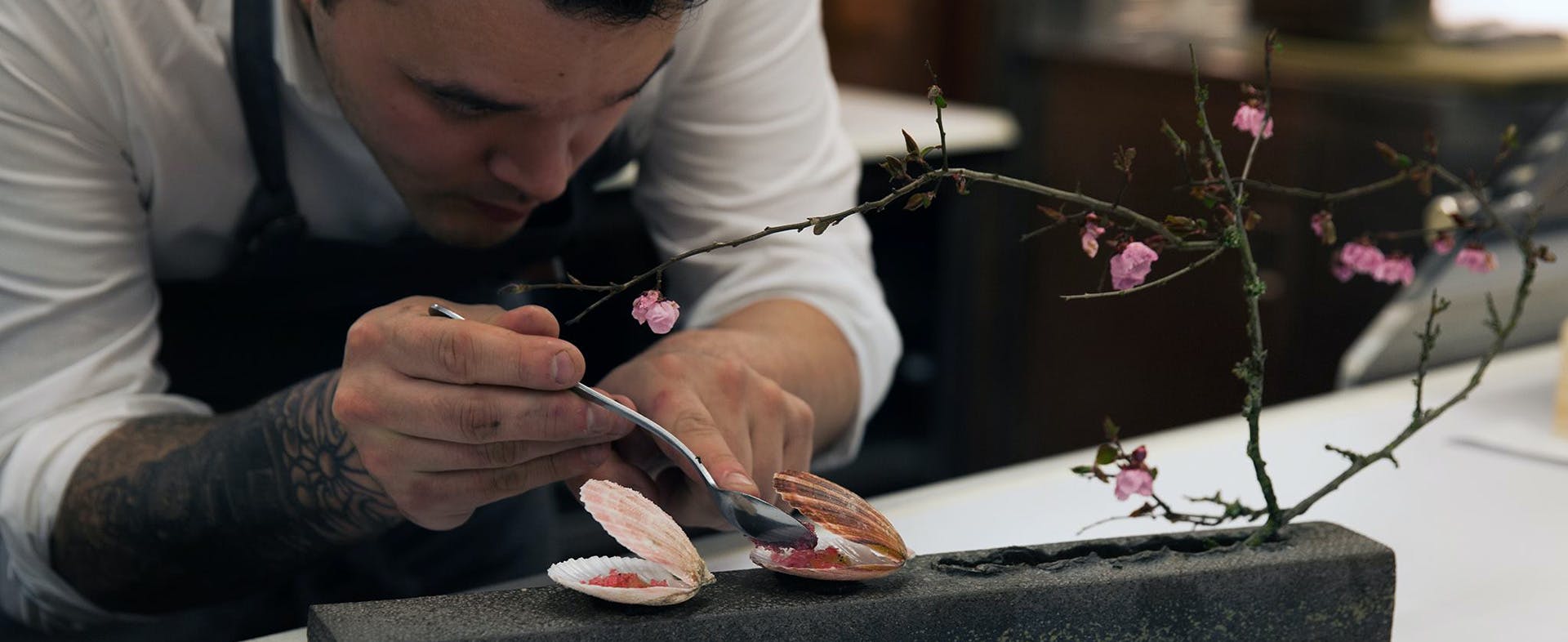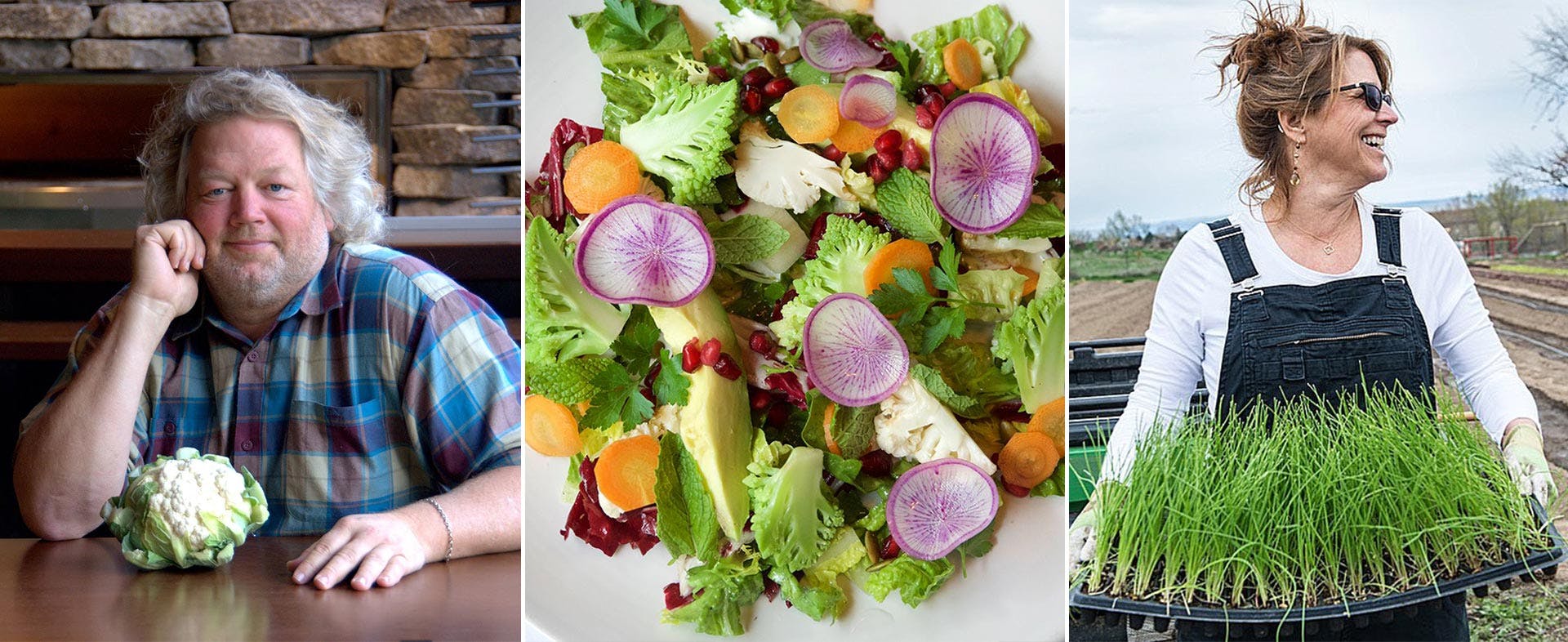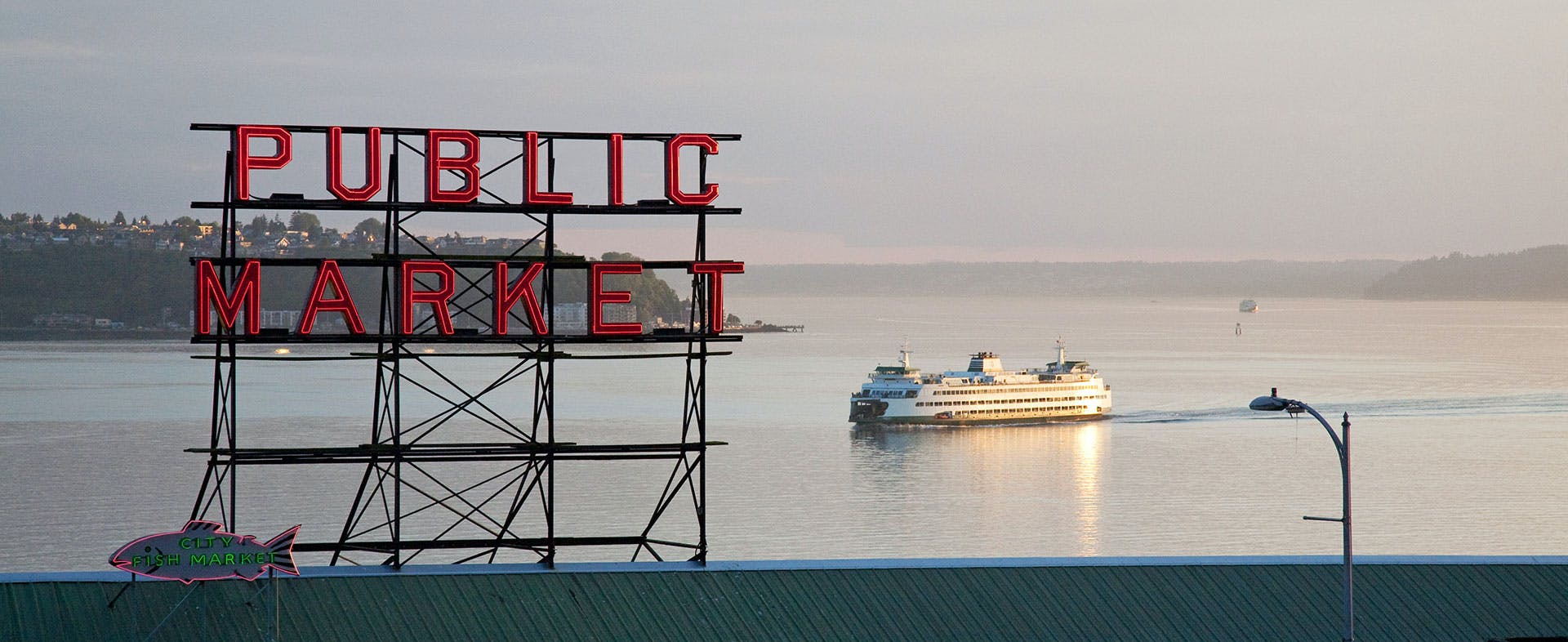Edouardo Jordan was ready to take a break from the fast pace of New York. "I was looking for something that matched my mentality and my philosophy of food. The West Coast felt good. Seattle felt better," he says.
After putting in time at fine dining restaurants around the country (including stints at both The French Laundry and Per Se), Jordan settled in the Pacific Northwest city, joining prolific local chefs like Renee Erickson and Tom Douglas. With both highly productive soil and an ocean of fresh seafood, Seattle seemed destined to be a great dining destination from the start. Add in the economic surge from tech giants like Microsoft and Amazon, and it's no shock that Seattle's caught national attention.
Photos: Astrum Photography
It's also brought an influx of new, young chefs who are taking Seattle's quintessential ingredients (wild berries, Dungeness crab, geoduck) and giving them new flavors, building on the dining scene's foundation laid by chefs like Erickson and Douglas, as well as Ethan Stowell and Matt Dillon.
Take JuneBaby, Jordan's spot that's made waves and racked up accolades from reviewers around the country, including a three-star New York Times nod from Pete Wells. Most recently, both Jordan himself and the restaurant were nominated for James Beard Awards.
After establishing himself in the Seattle dining scene with his first restaurant, Salare, Jordan opened JuneBaby as an homage to his heritage by way of Southern food. Where Salare focuses on a Pacific Northwest menu with a Southern flair, JuneBaby flips the script, bringing Jordan's childhood dishes and recipes from his family to the menu, using Southern ingredients grown in Washington State.
Photo: Astrum Photography
"[The Seattle community] understood what I was doing; they respected me as a chef because of what I’d built with Salare," Jordan says. "People stopped and listened when I opened up JuneBaby. And it could have gotten lost in the shuffle if I would have opened JuneBaby first, or [if I had opened it] in Georgia."
Seattle gave Jordan and others a unique opportunity to find their place in the community and diversify the city's dining scene that had come to be dominated by a handful of chefs. "Now we have cool, young chefs coming around, and they're doing more with the food than just roasting it over applewood and putting it on your plate," he says.
He's talking about chefs classically trained in French cuisines, or with a background in Mediterranean cuisine, and now Jordan and his self-described "Southern flair" are stepping out and helping to break what everyone saw as the norm for Northwest and Seattle cuisine.
Photo: Canlis via Facebook
"There’s some younger talent that has come up, and they are starting to settle in, and I think it's an encouraging thing for the city. Because as everyone settles in and matures and grows, the city and the dining scene will only get stronger," Brady Williams says. The 30-year-old chef—who was previously at Roberta's in New York—is the executive chef at Canlis, a restaurant that's consistently seen as the city's golden fine dining standard. "There’s so much room for growth as far as Seattle as a restaurant city that it’s a great opportunity for someone to come in and make their mark," he says.
At nearly 70 years old, Canlis is one of the oldest restaurants in the city. But with Williams's touch, the quality of dining and the atmosphere within are anything but tired. He brings a Japanese-inspired side to the menu and keeps everything seasonally relevant (in a recent pre-shift meeting, he mentioned a dish that "wouldn't work" in just two weeks' time). Yet nearly everything he does is a celebration of the Canlis history. There was the time he revived the wood-fire grill, a nod to Canlis's title as the first open kitchen in a fine dining room in America. He also resurrected Peter Canlis's famous steak sauce from the 1950s menu, which is now served with a malted pancake and fermented cabbage.
"He’s pushed us forward by looking back, by honoring our past, so he made us excited and proud about being 70 years old," Brian Canlis, one of the two brothers who now own the family business, says. "Instead of avoiding how old we were, we wear it like a badge of honor. Brady was the first chef that got us super excited about owning that whole story."
Photo: Canlis via FacebookInnovation aside, restaurants are nothing without their ingredients, and in Seattle, the quality of the raw ingredients surely contributes to the final product—most notably, in the ever present seafood.
Tom Douglas, another one of the city's culinary forefathers, acknowledges the chefs' responsibility to aim for sustainable practices. "We are in the forefront of the natural, wild and sustainably caught seafood movement, and I’m happy to be a part of that," he says.
Restaurateur Tom Douglas and his wife Jamie Cross | Photos: Tom Douglas Restaurants via Facebook
For chefs, all these factors have created a magnetic pull toward Seattle they don't see dying out anytime soon.
"I’m excited to be here and do my part to bring some light to Seattle and the great produce we have, the great seafood we have, but also now the great chefs that we have," Jordan says. "You’re able to get inspired by so many things from nature to what our farmers are actually doing, to art, culture, the music; it’s beyond food. . . . Seattle lends the opportunity to explore and clear your brain."
Photo: Visit SeattleWelcome to TT on Tour, where Tasting Table's editors guide you through everything you'll want to eat, drink and do in rising travel destinations around the world.
